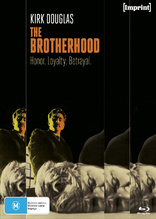The Brotherhood Blu-ray Movie
HomeThe Brotherhood Blu-ray Movie 
Imprint #119Imprint | 1968 | 96 min | Rated ACB: M | Apr 27, 2022
Movie rating
7 | / 10 |
Blu-ray rating
| Users | 0.0 | |
| Reviewer | 4.0 | |
| Overall | 4.0 |
Overview
The Brotherhood (1968)
The son of a powerful Mafia don comes home from his army service in Vietnam and wants to lead his own life, but family tradition, intrigues, and power plays involving his older brother dictate otherwise, and he finds himself being slowly drawn back into that world.
Starring: Kirk Douglas, Alex Cord, Irene Papas, Luther Adler, Susan StrasbergDirector: Martin Ritt
| Crime | Uncertain |
| Drama | Uncertain |
Specifications
Video
Video codec: MPEG-4 AVC
Video resolution: 1080p
Aspect ratio: 1.78:1
Original aspect ratio: 1.85:1
Audio
English: LPCM 2.0
Subtitles
English SDH
Discs
Blu-ray Disc
Single disc (1 BD)
Playback
Region free
Review
Rating summary
| Movie | 4.0 | |
| Video | 3.5 | |
| Audio | 4.5 | |
| Extras | 3.0 | |
| Overall | 4.0 |
The Brotherhood Blu-ray Movie Review
Reviewed by Dr. Svet Atanasov June 13, 2022Martin Ritt's "The Brotherhood" (1968) arrives on Blu-ray courtesy of Via Vision Entertainment. The supplemental features on the disc include exclusive new program with historian and author Bernard F. Dick as well as new audio commentary recorded by Cinema Retro publisher Lee Pfeiffer and film historian Tony Latino. In English, with optional English SDH subtitles for the main feature. Region-Free.
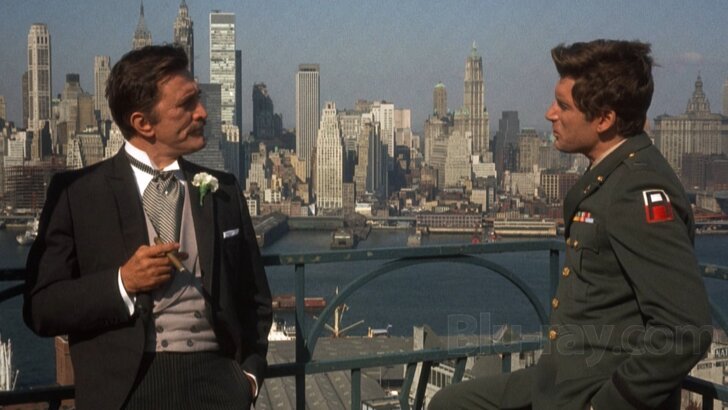
We're brothers. I want to be with you.
Producer and star Kirk Douglas and director Martin Ritt were way ahead of everyone else and this is the only reason The Brotherhood flopped at the box office. Indeed, very few people were prepared for the type of gangster film the two delivered, and the overwhelming majority of the critics, who were largely responsible for the disastrous box office receipts, quite simply did not get it. I took the time to read a few of the initial reviews The Brotherhood received and I could not believe some of their conclusions about its strengths and weaknesses. Some describe a completely different film, and some, like the one Vincent Canby wrote for The New York Times, are just flat-out bizarre. Consider how Canby describes Alex Cord and his performance, which is every bit as good as Douglas’, and in certain areas perhaps even better. “Not so effective is Cord. He is a lightweight actor, but he does have one thing going for him, at least in this role—the beginning of a chin dimple much like Douglas'.” The obvious animosity is perplexing because Cord’s performance is very nuanced and flawlessly controlled yet strikingly organic. If, as speculated in the review, Cord was a lightweight actor, Douglas would have instantly overpowered him before the camera and sunk the entire film in the first fifteen or so minutes. The opposite happens. Cord and Douglas are equal and after their crucial conversation at the wedding pressure gradually begins building up and eventually produces the powerful finale.
The original material for The Brotherhood came from Lewis John Carlino, who just a few years earlier had handed John Frankenheimer a screenplay for his classic film Seconds. Unsurprisingly, The Brotherhood has a complex narrative structure and some quite unexpected twists and turns as well.
Cord emerges at the airport in Palermo and immediately gets a taxi to take him to Douglas somewhere on the outskirts of the city. After it is revealed that the two are brothers who have not seen each other in quite some time because the latter has been forced into exile, The Brotherhood goes back in time and begins telling their story. In New York City, Douglas is now one of the top figures in the Mafia and slowly preparing Cord to be his successor. Business is good and everyone seems happy until a meeting is called and the other top figures in the Mafia announce a plan to infiltrate and eventually take over a high-tech business that is indirectly controlled by the government. When Douglas highlights the risks and refuses to vote in favor of the plan, his partners turn against him and Cord is secretly asked to either convince him to change his mind or “solve the problem”. Further complicating the situation is the fact that Cord’s father-in-law is one of the plan’s most fierce backers and Douglas has a score to settle with him. After a series of confrontations, Douglas abandons everything and with the help of his late father’s retired partners, most of them capos with supposedly outdated values and morals secretly reaches Palermo.
There is a great deal of pragmatic traditionalism in The Brotherhood that will soon after flourish in The Godfather films. Of course, it is mixed with the familiar cliches about mafiosi from the old country and their way of life in America, but Ritt very carefully uses it to give the drama a contemporary resonance that essentially negates the cinematic glamor gangster films were expected to have at the time. Could this be the reason why The Brotherhood flopped at the box office? Yes. In The Brotherhood the mafiosi already have diverse expectations of the future and except for Douglas are quite comfortable brushing aside loyalty and honor. They are connected, but it is all business and no one is irreplaceable. In other words, with this particular type of story The Brotherhood could not have been a conventional gangster film.
In a new program that is included on this release, Bernard F. Dick, historian and author of “Engulfed: The Death of Paramount Pictures and the Birth of Corporate Hollywood”, notes that Ritt mismanaged the ethnicity of The Brotherhood. I disagree. I don’t think that the mostly Jewish cast hurts the authenticity of the drama because the pragmatic traditionalism is what fuels it, not the unique complications in the ethnic relationships. (The Godfather films are different because the scale of their storytelling is different as well).
The Brotherhood Blu-ray Movie, Video Quality 
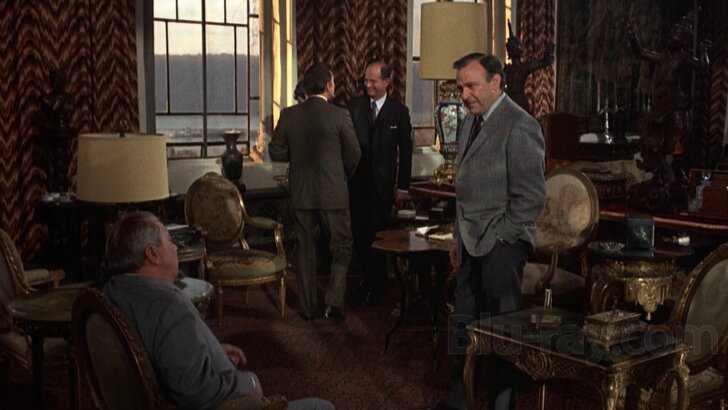
Presented in an aspect ratio of 1.78:1, encoded with MPEG-4 AVC and granted a 1080p transfer, The Brotherhood arrives on Blu-ray courtesy of Via Vision Entertainment.
The master that was used to source this release is old and comes from Paramount's vaults. However, despite some pretty obvious limitations, I think that it is quite nice. For example, delineation and clarity usually range from pleasing to good, plus there are no stability issues. The most notable fluctuations are in terms of depth, so on a large screen some panoramic shots definitely reveal weaknesses, but they are not disappointing either. As mentioned above, the master is simply old and there are inconsistencies in grain exposure that are responsible for the fluctuations. What is important to underscore is that they are not introduced by compromising digital work, so even with the weaknesses the visuals still have some decent organic qualities. Colors balance is good, but saturation levels can be improved and various highlights and nuances managed better. I few white specks can be seen, but there are no distracting large cuts, debris, warped or torn frames to report. So, if I had to guess, I would say that the current master comes from the DVD era, which means that you should expect it to have very particular limitations. However, I still think that the quality of the visuals gravitates around the 3.75/5.00 mark. (Note: This is a Region-Free Blu-ray release. Therefore, you will be able to play it on your player regardless of your geographical location).
The Brotherhood Blu-ray Movie, Audio Quality 
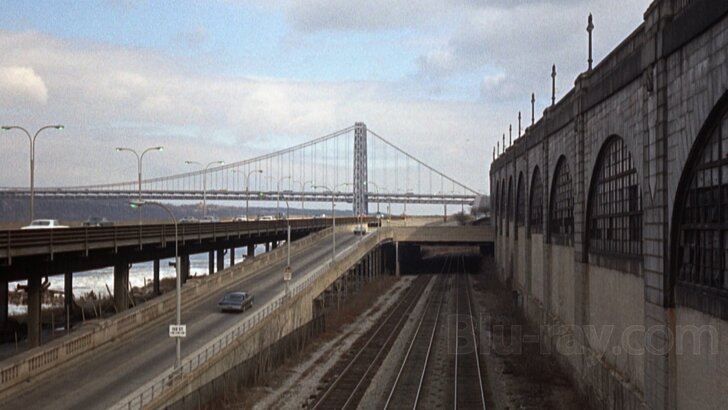
There is only one standard audio track on this Blu-ray release: English LPCM 2.0. Optional English SDH subtitles are provided for the main feature.
The great Argentine composer Lalo Schifrin created a very unique and very effective soundtrack for The Brotherhood and I am happy to report that the lossless track handles it very well. In fact, I was quite surprised to hear how good the lossless track sounded on my system because its dynamic nuances were petty impressive. I did notice some extremely light background hiss trying to sneak in a few times, but it is not something you need to worry about. Clarity, sharpness, and stability remain very solid.
The Brotherhood Blu-ray Movie, Special Features and Extras 
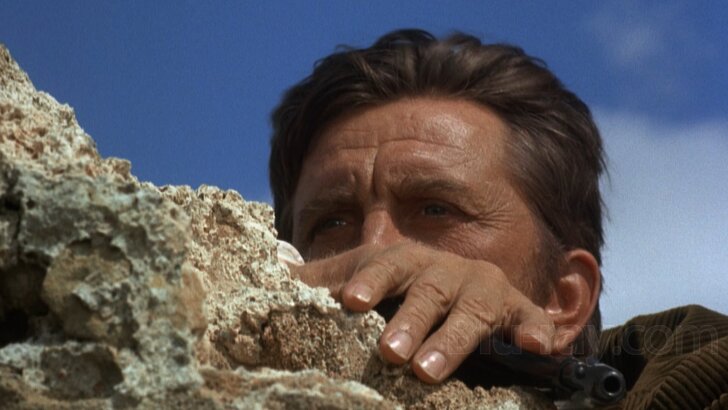
- The Kiss of Death: Paramount and The Brotherhood - in this exclusive new program, Bernard F. Dick, historian and author of "Engulfed: The Death of Paramount Pictures and the Birth of Corporate Hollywood", discusses the exact period in which The Brotherhood was funded and produced, its promotional campaign and critical reception, as well as some of the film's key strengths and weaknesses. Also, there are some quite good comparisons with The Godfather films. In English, not subtitled. (13 min).
- Commentary - this exclusive new audio commentary was recorded by Cinema Retro publisher Lee Pfeiffer and film historian Tony Latino. It is very good commentary with plenty of information about the conception and style of The Brotherhood, its critical reception, Kirk Douglas and Martin Ritt's careers, the evolution of the American gangster film, etc.
The Brotherhood Blu-ray Movie, Overall Score and Recommendation 
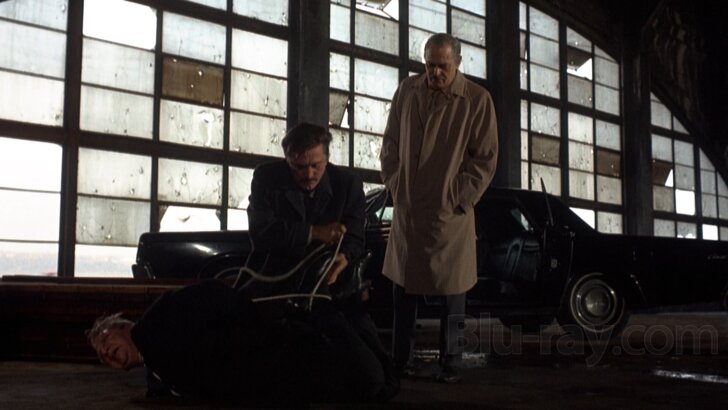
The Brotherhood urgently needs a serious critical reevaluation because it is not the creative misfire various old reviews describe. Obviously, it is not in the same league as The Godfather either, but it does many things right and has a personality that is quite impressive. I genuinely believe that in 1968 a lot of people were simply not ready for it and, sadly, Paramount did not know how to properly market it. Via Vision Entertainment's release of The Brotherhood is sourced from an old but good master and has two fine exclusive new bonus features. HIGHLY RECOMMENDED.
Similar titles
Similar titles you might also like

State of Grace
1990

Scarface
Imprint #37
1932

The Public Enemy
1931

Point Blank
1967

Things to Do in Denver When You're Dead
Imprint #144
1995

The Gambler
Imprint #49
1974

The Enforcer
Imprint #212 | Standard Edition
1951

Outrage
Imprint #95
1950

The Turning Point
1952

At Close Range
Imprint #25 | Standard Edition
1986

Across 110th Street
Imprint #120
1972

The Desperate Hours
1955

Criss Cross
Cinema Cult
1949

The Garment Jungle
1957

Gloria
1980

Violent Saturday
1955

13 West Street
1962
